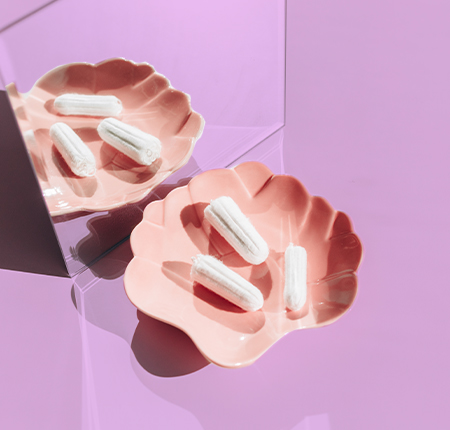
It is probably no news that sexual education is minimal in school and in the family, so the sexual health of each of us suffers throughout our lives, due to the lack of information. That's why we want to give you some quick tips to keep in mind, like notes, related to sexual health: from genital needs to lube, testing and trusting your partner - that's all the essentials!
What is sexual health?
Sexual health is an umbrella term that includes many factors and many meanings. When you read the phrase "sexual health", you probably often think of the word "sex". But did you know that sexual health is much more than the act of having sex?
Sexual health includes:
Sexuality
It includes how you think of yourself as a sexual being and how you express your actions, fantasies, sensuality.
Sexual orientation
Or who you are attracted to sexually, emotionally, romantically, including how you identify and express your attraction, through thoughts and/or behaviors. It also includes asexuality or lack of sexual desire and/or attraction. Sexual orientation is fluid and can change over time.

Gender identity
It's how you feel and identify: as female, male, both genders, in between, neither, nonbinary, transgender, or anywhere on the gender spectrum.
Gender expression
It represents how you express your gender identity or identities. This can be consistent or change depending on the individual.
The body and body image
The way you feel in your body and how you see yourself.
Sexual self-esteem
How you see yourself and how you feel as a sexual being
Sexual and reproductive health care
Includes sexual and reproductive health care, access and medical experiences such as: sexually transmitted infections and HIV, HPV and Pap tests , all about pregnancy tests and more.
Reproduction
It covers the reproductive organs, puberty, all about the menstrual cycle , menopause, pregnancy , birth, adoption and parenting. This includes contraception methods .
Violence and coercion
They include sexual abuse, sexual assault, consent, abusive power dynamics, freedom of expression, and the legality of experiencing your sex or gender identity without intimidation, fear of violence.
Consent and Limits
It includes topics such as the legal age of consent, understanding consent whether verbal or nonverbal, and personal boundaries.
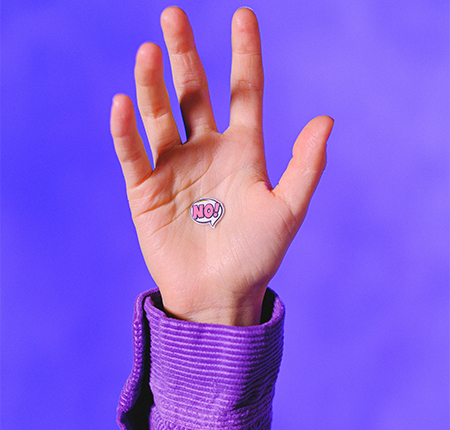
Relationships and intimacy
It is the part of sexual health that deals with different types of relationships, the dynamics of relationships, as well as recognizing when relationships are harmful.
Sexual and reproductive anatomy
How your body's sexual and reproductive organs work, including any gender-based surgery.
The pleasure
The ability to receive and experience sexual pleasure, either physically or mentally.
Sexual activities
The activities you engage in sexually and the sexual communities you are a part of. There is a wide range of sexual activities, and what is pleasurable and satisfying varies from person to person.
Employment
In the context of sexual health, it refers to sex work and the working conditions within it.
5 quick tricks for your sexual health
So, let's get straight to the tricks we were talking about! Here are 5 of them, which we hope will be useful for you!
1. Always urinate after sex
You've probably heard this many times! And not by chance! Because peeing after sex is absolutely necessary. This is so important to remember and you should not skip it! Urinating after sex helps flush out bacteria that has made it to the urethra, which is so important to help prevent urinary tract infections (which, in our experience, are horrible)! Although women are more prone to urinary tract infections, this is not a rule: men can also have such infections. So, make sure you always urinate after sex!
PS: urinating after vaginal sex will not prevent pregnancy or sexually transmitted infections. For these, you must protect yourself!
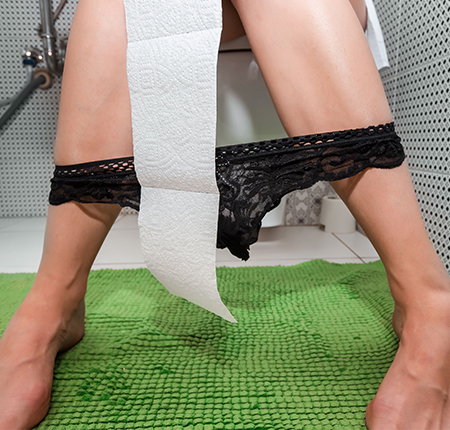
2. Use the lube
I know what you're thinking: "I don't need it!" Yes, you need it. Everyone everywhere needs lube, and we stand by it! It doesn't matter how much natural lube you can produce, lube prevents breakage, creates slippage, and can make everything more enjoyable. Whether you're using it as a couple or in a solo session, lube comes in all sizes, smells and tastes. But we recommend you to choose a lubricant made from as natural ingredients as possible, as we also support the use of 100% natural menstrual products . Every product you put on/in your body we believe should be as natural as possible, including lubricants. It is also important to know which lubricant is compatible with the condoms and/or toys you are using. And if you don't know where to start, we recommend looking for water-based, fragrance-free products that are safe for vaginal pH.
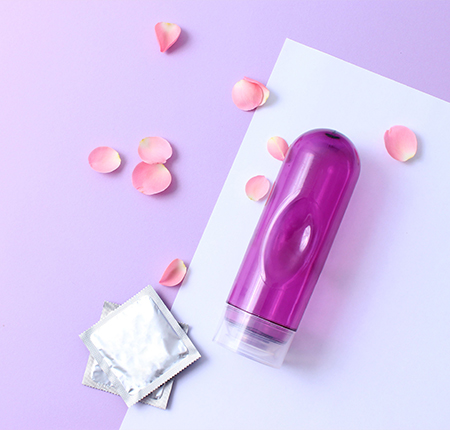
3. Test yourself
Especially if you have multiple partners or change partners frequently. While there is stigma surrounding STD testing, there shouldn't be. Furthermore, each of us should be responsible for our own health, but that means we must also be responsible for protection methods, communication and consent.
Because it is one of the most common sexually transmitted diseases, it happens that people infected with genital herpes do not know that they have this condition, although it is one of the most common sexually transmitted diseases. That's why testing is important. Because, as a rule, symptoms may not appear or go unnoticed. Read more about sexually transmitted diseases (STDs) in our article.
STDs seem scarier than they are, but medicine is advancing and today, we have drugs, tests, and answers! Not only is it respectful to get tested regularly, but it also relieves stress and can make you feel more confident.
4. Buy quality toys
As mentioned above, we like to know what's in the products we use near our bodies - we're talking condoms, sex toys, lubricants, skin care products, menstrual products, you name it!
When it comes to sex toys, you want to make sure that these gadgets are made with materials that are safe for the body. Like any product that comes into direct contact with your intimate area, it's no shocker that it should be as natural as possible. And today, there are tons of toy options out there in body-safe silicone, body-safe plastic—anything! Another major advantage of buying quality products is that they will last much, much longer. Read all about sex toys - how to choose the right toy, where to get it, which are the best - in our article.
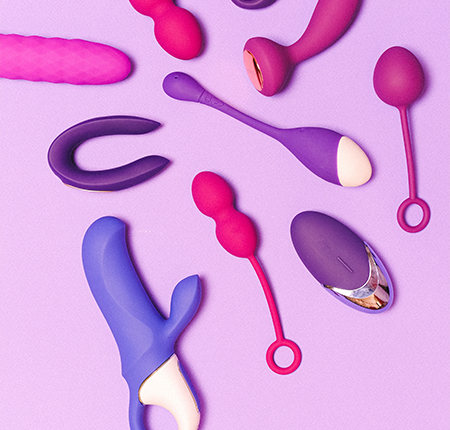
5. Discover what you like
Because, spoiler alert: knowing what you want will increase your sexual confidence! As you probably know, most of us have not been taught to be sexually confident, to know and accept our bodies, to be curious and to communicate about sex. But once you start learning, confidence in your sexuality increases, which can also lead to increased self-esteem: you feel better about your body, your choices, and your sexuality.
We think it's worth getting to know yourself (more), it's worth taking care of your sexual health. Self-care is not a selfish practice, quite the opposite! It means love, compassion and being kinder to yourself! Don't know where to start? Discover 100% organic cotton menstrual products and take care of your vulva, every day of the month!
